The CPA license is one of the most respected qualifications in accounting and finance. Earning your CPA can boost your career whether you’re in audit, tax, corporate finance, or even academia.
If you’re considering the CPA route, this guide walks you through the key steps and general requirements for how to becoma a CPA. While some details vary depending on the state you’re applying in, the overall process is largely the same across the U.S.
- What is a CPA?
- Summary of CPA requirements
- Step 1: Meet the CPA education requirements
- Step 2: Pass the Uniform CPA examination
- Step 3: Gain relevant work experience
- Step 4: Pass an Ethics exam (If required)
- Step 5: Apply for CPA license
- CPE requirements for CPAs (maintaining your license)
- For international candidates
- FAQs about becoming a CPA
What is a CPA?
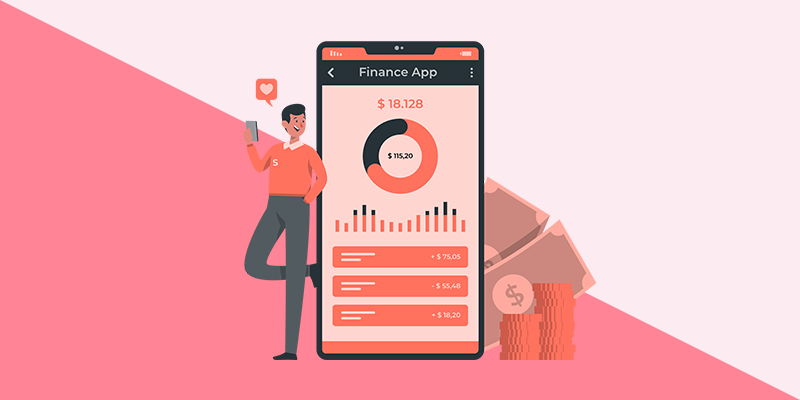
Before we get into exactly how to become a CPA, and for those who might be in the early stages of researching financial career options, let’s quickly remind ourselves what a CPA is.
A Certified Public Accountant (CPA) is a licensed professional who’s qualified to handle a wide range of accounting tasks like auditing, tax preparation, financial consulting, forensic accounting, and regulatory services.
There are a range of options and career paths available as a CPA, with these professionals typically working in:
- Public accounting firms
- Corporations
- Government agencies
- Startups, partnerships, or solo practices
Becoming a CPA means you’ve met rigorous education, exam, and experience requirements. It’s a credential that signals high levels of trust, expertise, and professional credibility. The CPA designation is granted and regulated by state boards of accountancy and is recognized as the gold standard in the accounting profession.
Now that we’re broadly familiar with what a CPA is, let’s get back on track and look at what’s required to earn this designation.
Summary of CPA requirements
| Step | Description |
|---|---|
| 1. Education | 150 semester hours with accounting coursework |
| 2. Exam | Pass all four sections of the CPA exam |
| 3. Experience | 1–2 years under CPA supervision |
| 4. Ethics | Complete an ethics exam/course (if required) |
| 5. Licensure | Apply to your state board |
| 6. Maintenance | Meet annual CPE requirements |
Step 1: Meet the CPA education requirements

Before you can sit for the CPA exam, you’ll need to hit a few key academic milestones. CPA requirements for education are the first hurdle, and one of the most important. In most cases, this means completing 150 semester hours of college-level coursework.
Key education components:
To meet the education requirements for the CPA exam, you’ll need:
- 150 total semester hours of education
- A bachelor’s degree (minimum)
- Coursework in accounting and business
- A graduate degree or additional credits
- Possibly a transcript evaluation if you studied internationally
Let’s break it down further:
The basics
150 semester hours of education are required in most states. It’s important to be aware that:
- A typical bachelor’s degree only gives you 120 hours.
- You’ll need to make up the remaining 30 hours with additional courses (often through a Master’s program or earning extra undergraduate credits).
Your degree must include a focus on accounting and business courses. Most state boards require:
- 24–30 credit hours in accounting.
- 24–30 credit hours in business-related subjects.
In short, you’ll need the equivalent of a bachelor’s degree plus an extra year of study to qualify for a CPA.
Required degree modules or study areas
To be eligible for the CPA, your academic studies will usually need to cover:
- Financial Accounting
- Auditing
- Managerial Accounting
- Taxation
- Business Law
- Ethics in Accounting
- Economics or Finance
As you can probably tell, this usually means completing a degree in accounting or a closely related subject to meet this part of the CPA requirements. Some states are very specific about how many credit hours must be in each subject, so make sure you check your state board’s rules.
To find out more about specific CPA requirements in different states, take a look at our guide: CPA Requirements By State.
Do you need a Master’s degree for a CPA?
So, to be eligible for the CPA you need to have completed a relevant degree plus have the equivalent to an extra year of study. Does this mean you have to have a Master’s degree to qualify? Not necessarily, but it helps.
Many candidates choose to complete a Master’s in Accounting (MAcc) or MBA with an accounting focus to meet the 150-hour CPA requirements and deepen their expertise. While taking the Master’s route is probably the most common way to meet the requirements, other options are available. Some candidates meet the requirement through post-baccalaureate certificate programs or by taking extra undergrad classes, for example.
Studied outside the U.S?
If you earned your degree abroad, and want to take the CPA exam or work as a CPA in the U.S., you’ll likely need a foreign credential evaluation to determine whether your education meets U.S. standards. This is usually done through NASBA’s International Evaluation Services (NIES) or a similar service approved by the state board where you plan to earn your CPA qualification.
Step 2: Pass the Uniform CPA examination
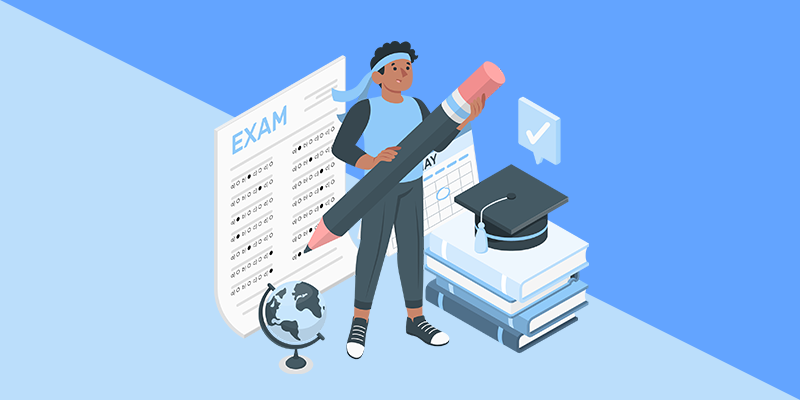
Once you’ve got your education in place, the next major step is tackling the CPA exam. This is arguably the most well-known and challenging part of how to become a CPA.
The CPA exam is a standardized, four-part exam that tests your knowledge of accounting, auditing, regulation, and business concepts. It’s developed by the AICPA and administered by the National Association of State Boards of Accountancy (NASBA).
What the CPA exam is really about
It’s important to approach the CPA exam with an understanding that it isn’t just about memorizing accounting rules. It’s designed to evaluate whether you have the skills and judgment needed to be a licensed accountant, including the ability to think critically, apply your knowledge in real-world scenarios, and stay up-to-date in a fast-moving profession.
It’s therefore essential that you’re able to demonstrate not just “what” you’ve learned, but that you understand “where”, “why” and “how” to use your knowledge and adapt it to meet different accounting challenges.
Passing the exam also shows that you’re not only technically strong, but that you understand the ethical and practical responsibilities of a CPA.
The CPA exam format (at a glance)
There are four sections to the CPA exam, each covering a different area of knowledge.
- You’ll need to pass all four within an 18-month rolling window (36 months in some states).
- A score of 75 or above (on a scale of 0–99) is required to pass each section.
- Each section is 4 hours long and each comprises 5 parts.
The format, structure, and available disciplines are evolving under the CPA Evolution initiative, so make sure you’re familiar with the latest exam version if you’re preparing now or in the near future.
The CPA exam format most recently changed in 2024. At the time of writing, there are three mandatory sections that all candidates must take. You then need to choose one additional section to specialize in.
| CPA mandatory sections (All required) | CPA additional sections (choose one) |
|---|---|
| Auditing and Attestation (AUD) | Business Analysis and Reporting (BAR) |
| Taxation and Regulation (REG) | Information Systems and Control (ISC) |
| Financial Accounting and Reporting (FAR) | Tax Compliance and Planning (TCP) |
For a more detailed breakdown of each section, test length, and scoring system, head over to our CPA Exam Guide: A Concise Overview.
When and where to take the CPA exam
The exam is offered year-round at Prometric testing centers, and now has increasing options for remote testing (depending on your jurisdiction).
- You can choose when to take each section, which allows for flexible planning around your work or study schedule.
- Remember: CPA requirements mean you’ll need to pass all four sections within a certain window. This is 18 months in some states, although NASBA has recommended states move to a 30-month window, which many are in the process of doing.
As with most exams at this level, it’s a good idea to create a realistic study timeline early on, whether you plan take one section at a time or double up to finish faster.
What to expect from the CPA Exam
The CPA exam is considered tough. Many candidates describe the exam as one of the hardest academic challenges they’ve faced, and the most difficult part of how to become a CPA. But don’t worry as passing is quite possible with the right CPA exam prep and study plan.
For context, in 2024 the pass rate was about 50% on average, for the three Core sections.
You’ll need to understand concepts, not just memorize rules. Application and analysis are key. This is because the CPA exam is designed to test your ability to solve practical, on-the-job problems in order to demonstrate that you’re capable of using what you’ve learned in real-world scenarios.
In terms of prep time, most candidates spend somewhere in the region of 300 to 400 total study hours across all four sections. However, in reality you should probably regard this as a minimum and consider putting in up to 500 hours for the best chance of passing.
Step 3: Gain relevant work experience
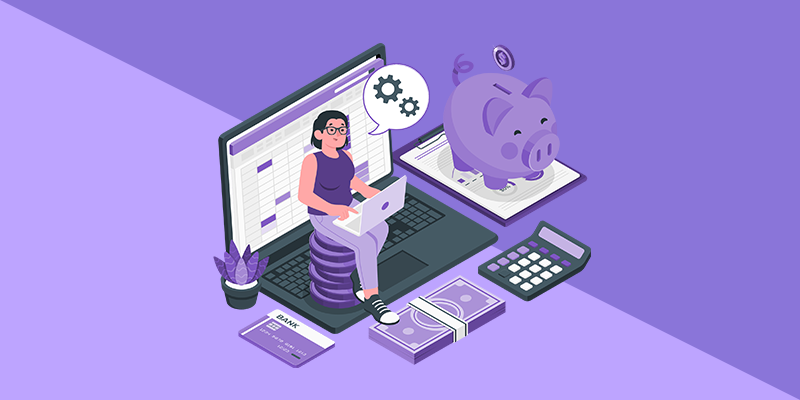
Passing the CPA exam is obviously a major achievement, but it’s not the end of the journey. To earn your license, you also need to prove you can apply your skills in the real world. This is where the experience requirement comes in.
But don’t think that you have to pass the exams before beginning this part of the CPA requirements, because gaining experience while taking the exam can actually make the path to becoming a CPA that much smoother. A lot of candidates actually study for and take their CPA exam while working in a suitable role, or completing an internship.
We’re looking at them separately in this article for the purpose of clarity, but it’s very common for Steps 2 and 3 to happen simultaneously or overlap.
Why work experience matters
State boards want to see that you’ve spent time working in the field, applying accounting principles, handling real responsibilities, and working under professional standards.
While being academically proficient is important, CPA roles often involve some pretty high stakes. This means that as well as understanding the theory behind what you’re doing, you need to be able to show that you are also sufficiently competent when it comes to putting that theory into practice.
The goal is to make sure you’re job-ready, not just test-ready.
General work experience CPA requirements
While each state sets its own rules, most follow a similar pattern:
- 1–2 years of relevant, full or part-time experience (around 2,000 hours).
- Must be completed before or after passing the CPA exam.
- Needs to be verified and signed off by a licensed CPA.
- Work can be in public accounting, corporate finance, government, or academia
What counts as relevant experience?
You don’t have to work in a Big Four firm to qualify. Acceptable experience often includes:
- Auditing or attestation services
- Tax preparation or advisory
- Financial reporting or analysis
- Management accounting
- Budgeting or forecasting
- Internal controls or compliance
Some states also accept teaching or research roles in accounting, provided they meet certain standards. However, you should always check your state board’s specific guidelines around how to become a CPA as they can differ on what’s considered acceptable experience when it comes to roles of this nature.
CPA supervision requirement
In most cases, your experience needs to be supervised by a licensed CPA, who will confirm that your work met professional standards and verify the duration and nature of your duties. They’ll also need to sign a verification form or affidavit when you apply for your license.
If you’re not currently working under a CPA, it’s worth finding out whether your experience still qualifies, or how you might adjust your role to meet the requirements if it doesn’t.
CPA work experience in non-traditional roles
If you’re working abroad or in a less traditional accounting related role (for example in management consulting or fintech), don’t assume your experience won’t count. Many boards are flexible to a certain extend around how you meet the CPA requirements, as long as the skills and supervision align with their criteria.
Just make sure you:
- Keep detailed job descriptions.
- Document your duties.
- Confirm your supervisor’s CPA license status (and jurisdiction).
Step 4: Pass an Ethics exam (If required)
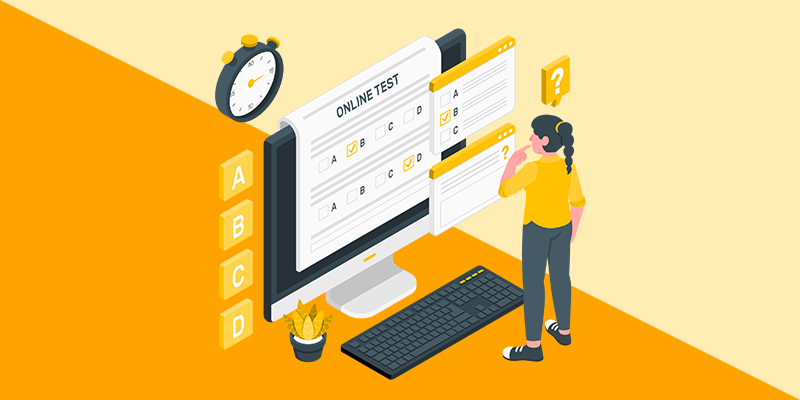
Once you’ve nailed the CPA exam and have some real-world experience under your belt, there may be one more box to tick before you can officially call yourself a Certified Public Accountant: the ethics exam.
Not all states require it before you can become a CPA, but if yours does, it’s an unavoidable part of the process.
What is the CPA Ethics exam?
The ethics exam tests your understanding of the professional standards, responsibilities, and conduct expected of a CPA. It’s not actually so much about numbers, it’s more about decision-making, integrity, and how you handle complex or sensitive situations in the real world.
Think of it as a final checkpoint: “Can this person be trusted to act professionally and ethically as a CPA?”
Who requires it?
CPA requirements in the majority of U.S. jurisdictions involve taking some form of ethics exam. Some states include it as a standalone requirement before granting a license, while others fold ethics into the general Continuing Professional Education (CPE) requirements after you’re licensed.
What is the CPA Ethics exam like?
Many states use the AICPA Professional Ethics Exam. This is a self-study, open-book course that you can complete online or via print materials. It includes multiple-choice questions focused on:
- Code of Professional Conduct
- Independence
- Confidentiality
- Objectivity
- Professional skepticism
Most candidates complete it in a few days. The passing score is 90%, but don’t worry, it’s designed to be straightforward, especially compared to the CPA exam itself. With that being said, you should still ensure that you plan and prepare as necessary.
Some states such as California and Texas administer their own CPA ethics exam, so it’s important to make yourself aware of the specific requirements where you’re located (and take the right exam).
When to take it
Most candidates in states where it’s needed usually take the ethics exam after passing the regular CPA exam, before submitting their license application.
In some states, you can take it earlier if you like. It doesn’t usually require experience or other eligibility to get started, so you can add it into your plan at a point you think will suit you best.
Step 5: Apply for CPA license
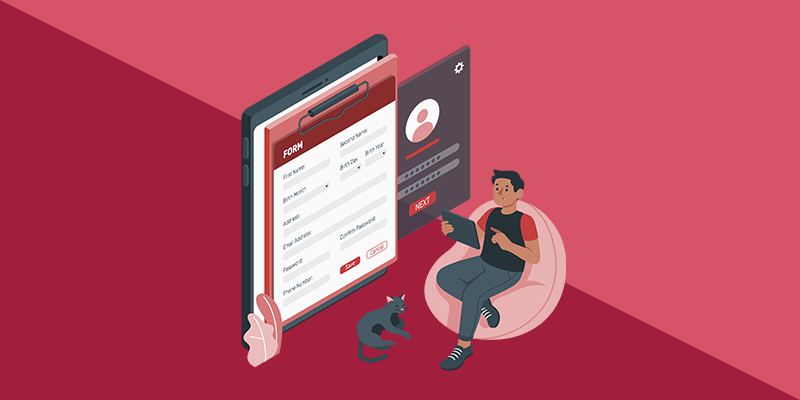
You’ve completed the coursework, passed the CPA exam and logged the experience. Maybe you’ve even tackled the Ethics exam. Now it’s time for the final step: applying for your CPA license.
This is where everything comes together!
What is a CPA licensure?
Applying for licensure is your official request to become a CPA. It’s not automatic; you need to submit proof that you’ve met all the requirements and pay an application fee to your State Board of Accountancy.
Once your application is approved, you’ll be issued your CPA license and officially gain the title of Certified Public Accountant.
What you’ll typically need
Each state has its own checklist for CPA requirements at the licensing stage, but here’s what most applicants are asked to submit:
- Completed application form (online or paper, depending on your state).
- Official transcripts showing your education (usually sent directly from your university).
- CPA exam scores (NASBA typically sends these to your state board automatically).
- Experience verification (signed by a licensed CPA, often on a specific form).
- Proof of ethics exam completion (if required).
- Application fee (usually between $50–$200).
Some states may also ask for fingerprinting, and many will also carry out some form of background check as part of the process to ensure you’re considered fit to practice.
When should you apply and how long does it take?
You can usually apply once all core requirements are completed: education, exam, experience, and ethics. There’s no strict deadline, but applying sooner means getting licensed faster, and being able to start using your CPA designation professionally.
Processing times vary by state, but it will typically be 2 to 8 weeks. Some boards are faster with online submissions, while others may take longer due to manual reviews or documentation issues.
You can’t usually speed the process up, but you can ensure there aren’t unnecessary delays.
- Double-check that all documents are fully complete.
- Ensure your supervisor has signed off on your experience correctly.
- Use tracked mail or electronic submissions where possible to avoid forms being lost.
What happens after you’re approved?
Once your application is approved, you’ll receive:
- Your CPA license number.
- Information on how to maintain your license (including CPE requirements).
- A congratulatory notice, because you’ve officially made it!
- Some states also issue physical certificates (perfect for framing).
At this point, you can start using “CPA” after your name, list it on your résumé, and begin practicing as a licensed professional in your state. Woohoo!
CPE requirements for CPAs (maintaining your license)
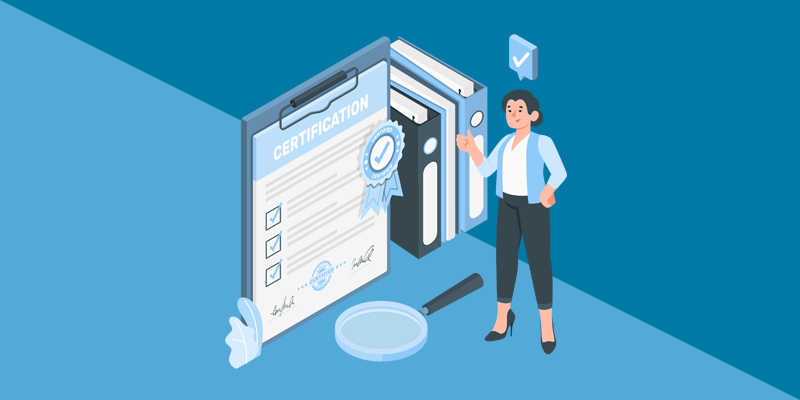
Getting your CPA license is a major milestone, and certainly something to be proud of. But keeping it is just as important. With CPAs able to earn good salaries, and benefitting from plenty of opportunities for career progression, it’s usually worth undertaking the maintenance needed to retain your status.
You’ll need to stay sharp and up to date with the latest in accounting standards, ethics, and industry practices. That’s where CPA requirements for Continuing Professional Education (CPE) comes in.
What is CPE for CPAs?
CPE (Continuing Professional Education) refers to the courses, webinars, and other learning activities that help CPAs maintain and improve their professional competence. It’s required by every state board to renew your CPA license.
CPE ensures you’re staying current with evolving laws, regulations, technology, and best practices, whether you’re in tax, audit, corporate finance, or advisory.
How much CPE do you need?
The specific CPA requirements for CPE vary by state, but most jurisdictions expect one of the following:
- 40 hours of CPE per year.
- 80 hours of CPE every 2 years.
- 120 hours of CPE every 3 years.
Most states also require:
- 4 hours of ethics CPE per cycle
- Limits on “non-technical” hours (like soft skills or personal development).
- Caps on self-study or nano-learning formats.
As we’ve mentioned, CPE requirements differ from state to state, so it’s important to ensure you comply with the frequency, quantity, and topics needed by your board.
What counts toward CPE?
You can earn CPE hours through a wide range of activities, including:
- Attending live seminars or conferences.
- Completing online courses.
- Participating in webinars.
- Teaching or presenting courses (in some cases).
- Publishing technical articles or research.
- Taking university or college courses in accounting or related topics.
To count towards your CPA requirements for CPE, the course must be from a recognized provider and include proper documentation (e.g., attendance certificates or completion reports).
You’ll need to keep documentation of your CPE activities in case you’re selected for a state board audit. As a good rule of thumb, you should maintain proof of completion (certificates, transcripts, etc.) and keep your records for at least 5 years.
What happens if you don’t meet the CPE requirements?
Missing your CPE requirements can lead to penalties or late fees, the temporary suspension of your license, or in some cases even license revocation.
If you’re falling behind, don’t panic. While it’s always better to try and stay ahead, many boards allow for extensions or grace periods. Even if your license is revoked (which isn’t very common), the board may enable you to participate in a reinstatement plan, or request that you complete additional hours to make up for your shortage of CPE.
For international candidates

If you’d like to become a CPA but earned your education or qualification outside the U.S, the good news is that you don’t have to start from scratch.
International candidates can absolutely become licensed CPAs in the US, but there are a few additional steps to meet education and eligibility standards. The exact process of how to become a CPA will depend on your background, where you studied, and what country you’re from.
Generally, you’ll be considered an international CPA candidate if:
- You completed your education outside the US
- You hold a foreign accounting qualification (e.g., CA, ACCA, CPA Australia, etc.)
- You’re a non-U.S. citizen or resident applying to become licensed in a U.S. state
Get your education evaluated
To sit for the CPA exam, your education must meet the same standards as a U.S.-based candidate. That means completing at least 150 semester hours of education, a suitable bachelor’s degree or equivalent, and the required coursework in accounting and business subjects
Because degrees in other countries are often structured a bit differently to those in the U.S., you’ll need to submit your transcripts to a credential evaluation service approved by the state board or NASBA. An important detail is that the evaluation must be sent directly to the state board, not to yourself.
Choose a CPA exam state or take your exam locally
If you’re planning on taking your CPA exam in the U.S. it’s important to be aware that not all states accept international candidates the same way. Some have more flexible policies regarding CPA requirements for international candidates, or experience waivers. You might have already chosen a state you’d like to work or study in, but some things to consider are:
- Whether you need a Social Security Number (some states waive this).
- Whether that state provides license portability (if you’ll need to transfer your license elsewhere later).
- What the experience and ethics CPA requirements are (some states have less stringent requirements than others).
Once your education is approved, the exam process is the same as for U.S. candidates. You’ll need to apply for exam eligibility through the state board and then receive your Notice to Schedule (NTS).
If you’d prefer to take the CPA exam in your home country, you can book and take your exam at an approved international Prometric testing center. CPA exams are offered internationally in places like India, Japan, Brazil, Europe, and the Middle East.
Fulfill experience & Ethics requirements
These steps are also state-specific, but many allow international candidates to:
- Gain experience abroad, as long as it’s verified by a licensed U.S. CPA.
- Complete the ethics exam online or by mail.
- Meet licensing requirements remotely, without needing to move to the U.S.
Mutual recognition agreements (MRAs)
If you’re already a qualified accountant in certain countries, you may be able to bypass the full CPA exam requirements through a Mutual Recognition Agreement (MRA). MRAs currently exist between the U.S. and:
- Australia (CA ANZ)
- Canada (CPA Canada)
- Hong Kong
- Ireland
- Mexico
- South Africa
You’ll need to pass the International Qualification Exam (IQEX) instead of the full CPA exam.
FAQs about becoming a CPA

So there we have it, a step-by-step guide on how to become a CPA. Hopefully you will have found this helpful if you’re in the process of deciding whether to pursue this career or want to understand more about CPA requirements. Here are some other related articles that you might also find useful:
I have been graduated from Kabul university since 2005 and have BA degree as well as I have almost 10 years work experiencein auditing and taxation so I would like to de admission in CPA program. I hope Kindly guide me.